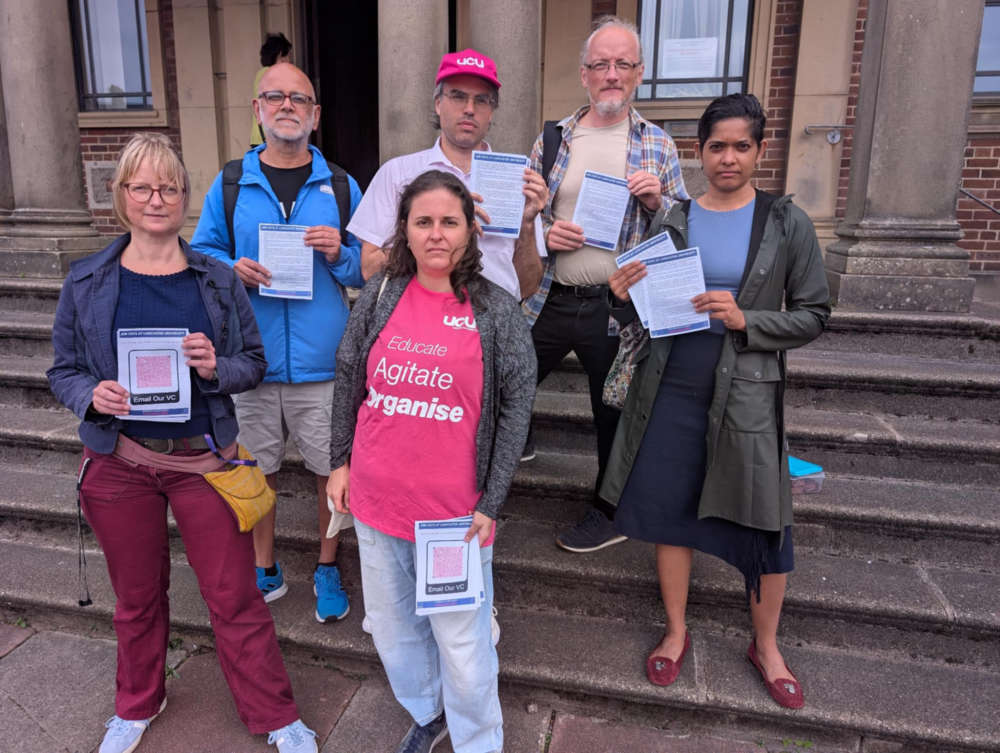
Staff have hit out over plans for job cuts at Lancaster University.
University tutors, speaking to councillors at Morecambe Town Hall, said this was "not just a crisis for the university, but also for Lancaster city and community".
They said the university "wants to cut approximately 462 jobs, split equally between academic and professional services staff" and that a voluntary redunancy scheme was under way, with compulsory redunancies to follow in September.
Dr Sunil Banga and Dr Shakthi Nataraj spoke out at a meeting of Lancaster City Council on Wednesday.
Professor Sarah Kemp, Pro Vice Chancellor (Engagement), also spoke and said the university had to reduce its costs by around £35m per year, saying "we need to restructure as we cannot afford to keep running a deficit beyond next year".
She said redundancies would be "as far as possible by voluntary means".
Dr Banga, Lancaster University UCU branch president, is pictured speaking at the meeting alongside Dr Nataraj. Also pictured are Lancaster City Council officers and councillors.
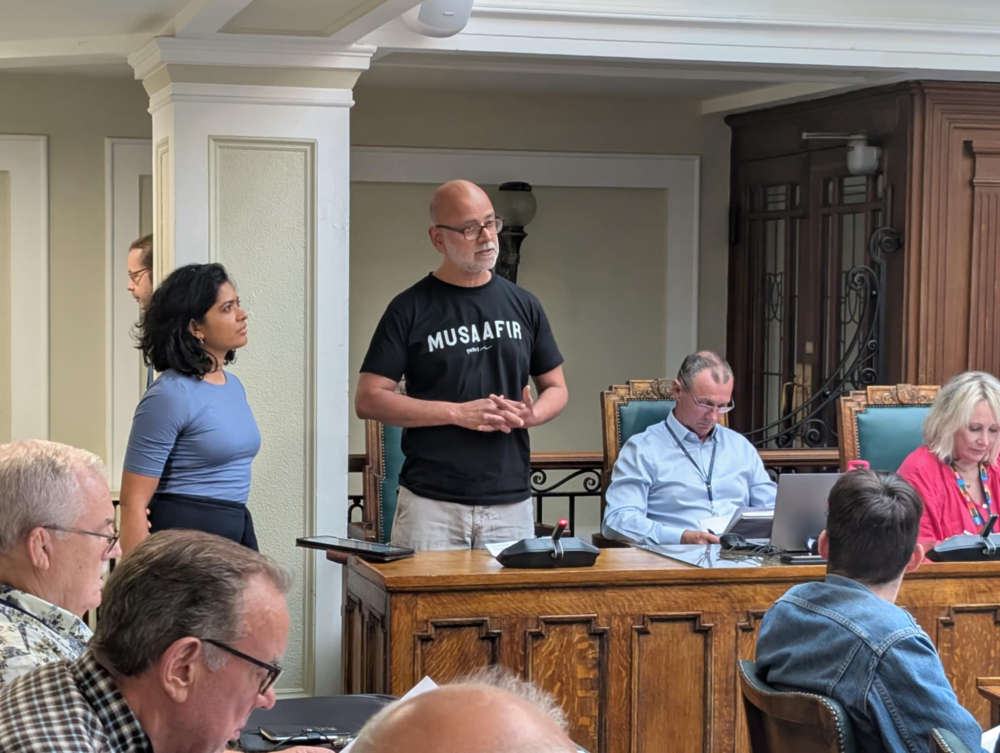
He said: "UCU (University and College Union) believes this is a crisis entirely of senior management’s making.
"It is not just a crisis for the university, but also for Lancaster city and community, because it puts the future of Lancaster residents, businesses, and local community at risk.
"Lancaster University wants to cut approximately 462 jobs. These are to be split equally between academic and professional services jobs. A voluntary redundancy scheme is under way right now, and the university has said it will open a compulsory redundancy scheme in September.
"The university is claiming financial distress ironically, while cutting 462 jobs, senior management layers are not being cut. The overall executive pay at the university currently is £2.3m.
"Such an exceptionally large reduction in staff requires exceptionally good evidence to support it. We have not seen such evidence.
"We have asked for it and are still waiting.
"Preliminary financial information that we can access has not been very convincing.
"The university is basing their decisions on the findings of an external accountancy firm, KPMG. They are refusing to share with us the complete KPMG report. We have asked a number of times.
"The university is a charity, it is not a business, and it does not need to pay any dividends to its shareholders.
"So why this sudden narrative of financial distress in cutting jobs?
"We believe the university has taken out £115m in loans from banks, and this is putting pressure on interest payments and cashflow.
"The easy way out, we believe, is to cut jobs rather than do the difficult job of managing the finances well.
"There seems to be no accountability, either to staff, students, or our elected councillors.
"The university is making decisions that will impact the city, community and business, and there is no accountability at all."
Dr Nataraj then said: "What does it mean for Lancaster?
"Lancaster University is a hub of economic activity. It is one of the largest employers in the region. The university indirectly and directly supports 6,000 jobs in the region, generating a total economic impact of £1.2bn across the North West, and £2bn across the UK.
"It is a catalyst for growth at all levels. It creates a highly qualified workforce which accelerates economic growth in the region. It provides education for students from all backgrounds playing a key role in social mobility in the region. It plays a crucial role in preparing the next generation of doctors and engineers and other professionals, many of whom stay on in Lancaster and surrounding region.
"Cutting one in four jobs would severely negatively impact the local economy, leading to reduced spending and decreased investment in the region. It means 462 families affected, livelihoods lost, mortgage defaults, and a direct impact on businesses particularly accommodation, retail, and services that rely on student and staff spending - that includes local shops, high street, taxis, hotels, all of whom thrive on the students and visitors which the university attracts.
"This would have a ripple effect, impacting these industries and potentially leading to further job losses and business closures - including reduced tourism (parents, relatives, friends of international students and international researchers who visit), a loss of skilled workforce, and a negative Impact on property values.
"What can the council do? There are four things we are asking you to do - write to the Pro-chancellor as chair of council asking them to rule out compulsory redundancies.
"Use whatever influence you have with the university leadership to put pressure, and highlight the impact of their decision on the local economy, to ask them to withdraw compulsory redundancies.
"Write to the (Minister of State for Skills) Jacqui Smith and make it clear that Lancaster cannot afford compulsory redundancies.
"Stand in solidarity with UCU and other unions. UCU will be taking strike action later in the autumn term to fight against compulsory redundancies. We really hope for your support."
Professor Kemp (below), in her speech, said: "The university teaches approximately 26,000 students across six international locations, the largest of these being Bailrigg in Lancaster and the remainder in China, Malaysia, Indonesia, Ghana and Germany.
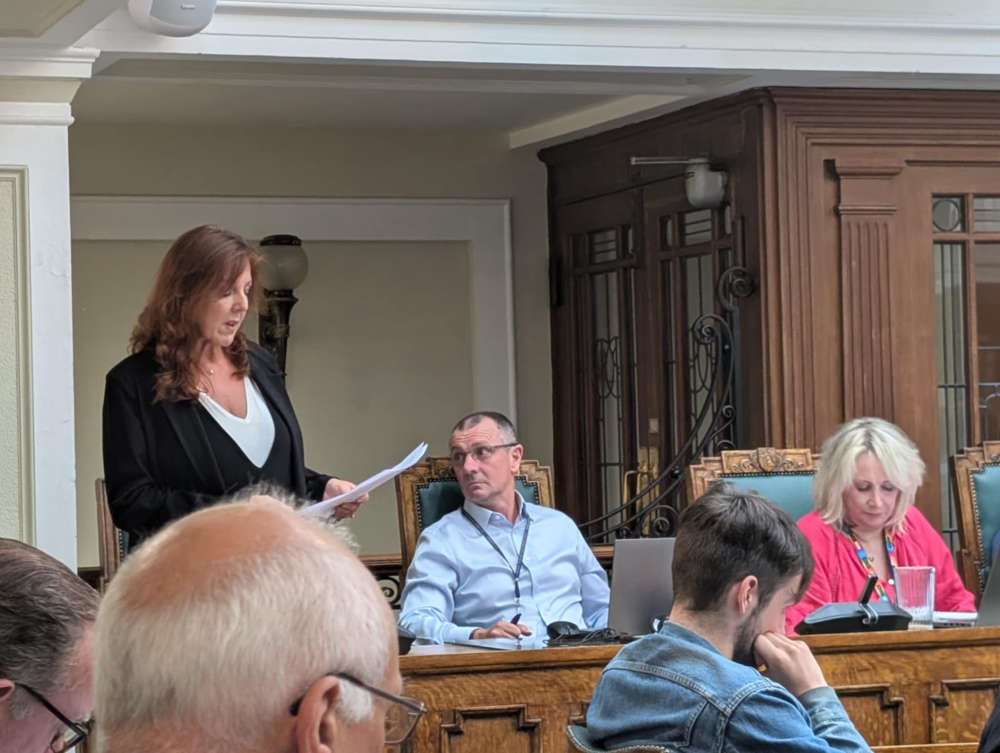
"Over an extended period of time, the international student population in Lancaster has grown to represent about one third of our campus population - we strive to be an exemplar of diversity, equality and inclusivity which benefits our students and staff and our wider community.
"The university is a civic anchor institution of the region, established 60 years ago, to create local transformational change, a responsibility we take very seriously, playing an active role as a significant contributor to the vibrancy and success of the local area as a major employer, purchaser of goods and services, source of spin-outs and start-ups, driving innovation and enterprise across the region’s business base, building a strong pipeline of skills and talent, solving local and global challenges and working together with local partners to deliver major strategic initiatives such as Eden Project Morecambe.
"The university is in sound financial health, with good levels of liquidity which would be the envy of many UK universities.
"However, significant changes have taken place particularly in the overseas student market over the last two recruitment cycles and we expect it to get significantly worse for this summer cycle. These changes are impacting all UK universities. For Lancaster this means we need to act over the next 12 months if we are to continue to be as financially strong and stable university as we are now.
"That action amounts to us reducing our costs by £35m."
Professor Kemp said that figure came from "stagnation of home undergraduate fee when compared to inflation has reduced its value by 26 per cent since 2018...to compensate for this we had planned steady growth of overseas recruitment - the only place where we can charge at the market price because our fees for home students are capped.
"In 21/22 we were aiming to grow international students modestly to about 1200 by 24/25...this was reasonable given the trends at that time - however, in 23/24 and 24/25 we missed that growth target and saw reductions in student numbers as many other universities have.
"By imposing strict control on staff recruitment and expenditure we have in 24/25 stabilised the budget - contributing to our reasonably strong position now; our predictions now for 25/26 have deteriorated further though - especially in the overseas Postgraduate Taught market.
"We now expect to recruit roughly 1000 international students fewer compared to our projected position from 21/22. With an average international fee of £25,000 this is a shortfall of £25m per year.
She said "When coupled with pay awards, the NI (National Insurance) and minimum wage changes (only partially compensated by a small uplift in the undergraduate fee cap, rising energy and other inflationary costs we need to reshape our finances to find £35m savings.
"To stress test our assumptions, we employed KPMG to conduct an independent analysis of our finances and forecasting and they confirmed the £35m figure after considering a range of different future scenarios.
"While we will break even in 24/25, our latest projections mean that we are planning for a deficit budget in 25/26. This we will fund from reserves we built up when overseas student recruitment was good.
"However, we need to restructure as we cannot afford to keep running a deficit beyond next year.
"The cost of that restructuring is built into next year's’ budget which has a deficit of £31m. We have assumed that jobs are protected until July 2026, but after that point we need to have reduced our expenditure by £35m a year.
"The actions we are taking now include a planned reduction in workforce from July 2026 which will take overall staffing levels back roughly to where they were in 2018/19.
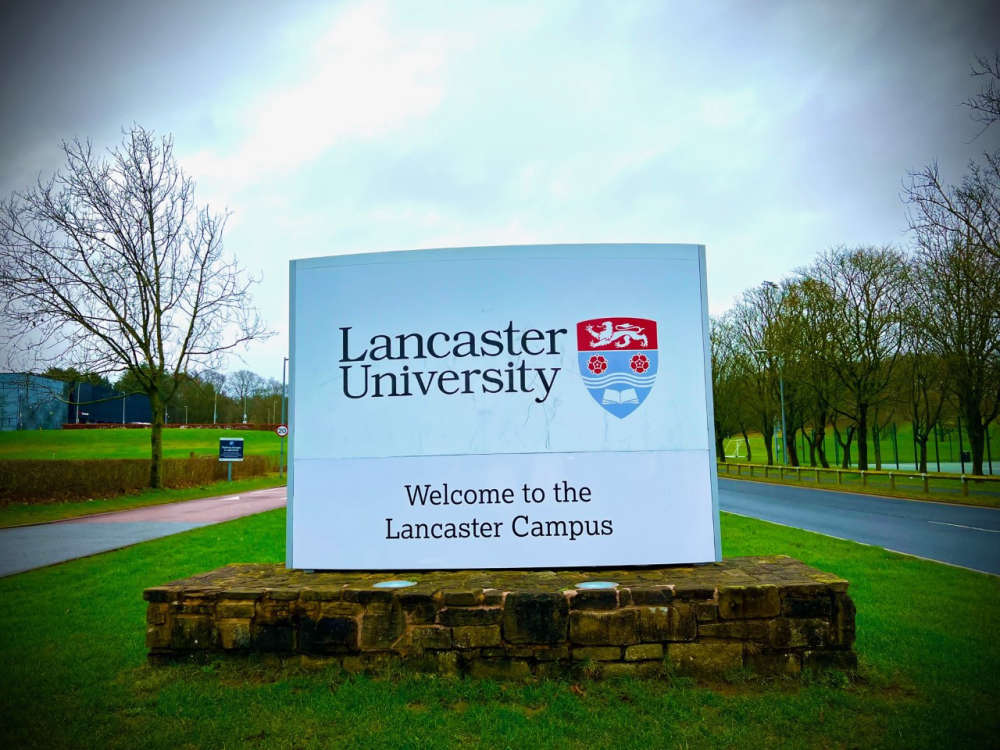
"Where changes to staffing are required, we are committed to doing this as far as possible by voluntary means and with equity between our academic and professional services staff.
"Above all our Lancaster values of respect for the individual, building communities and having a positive impact in the world are underpinning how we do this.
"In reshaping we have applied a number of principles to ensure the university remains the research and teaching intensive institution it has built its reputation on and continues to deliver the same wide range of disciplines, within a collegiate structure. We also have factored in the need to continue to grow in strategically important areas such as cyber security, so that we continue to support local businesses and generate new spin-out companies.
"We do not plan to withdraw from whole academic disciplines - in particular we will retain humanities and social sciences disciplines.
"It does mean that reductions will apply across all academic disciplines and professional service divisions.
"The amount of savings we can reasonably expect in each area has been informed by methodology from KPMG but ensuring that this is consistent with the principles outlined, as well as recognising areas of future growth, research excellence and opportunity. This has been the work of the executive leadership team of the university.
"We also continue with a number of projects designed to widen our reach and generate new income streams.
"This includes a redesigning of our curriculum so we continue to attract talented students and produce highly skilled graduates into the workplace."
In response, Councillor Caroline Jackson, leader of Lancaster City Council (below), said: "Someone said to me once, an elderly resident of Lancaster, until Lancaster University came to Lancaster, this was a homogenous northern town, with a questionable commercial past and industries that were in decline. Lancaster University brought it back to life.

"We acknowledge that Lancaster University brings us diversity, it brings us that student presence that brings life and interest and money, it brings us entrepreneurial flair and technological expertise, and it brings us a strong environmental concern which goes right across Lancaster.
"So the workforce of the university, is an essential part of that community. The loss of staff in large numbers will undoubtedly have economic and social consequence in the life of our area.
"We have every interest and every hope that the numbers who are no longer employed are as low as possible, and every effort is made with other employers to offer opportunities to keep these talented and settled members of the workforce in our area.
"Compulsory redundancy, is a painful one. We have in the recent past had to consider compulsory redundancies ourselves (at the council). Our officers worked very hard and managed to reduce that and take every opportunity to make sure staff stay with us. We ask that this approach is taken across the board (at) the university.
"Hearing that you have a plan to make sure that, as we did, that you can be sustainable, is reassuring for us.
"We know the university has been subsidising courses for its home-grown students for some years and everyone has benefitted, including some of the young people from our area.
"We really call on the university to do as much as it can. We will write to the minister to say that (staff) should not be facing compulsory redundancies at Lancaster University and that further consideration should be given to measures such as the restriction on foreign students, which has affected universities across the country.
"The information on the financial position of the university presents the hope, unlike some universities, you don't have to face bad consequences.
"But in terms of the university union staff, I ask that you do openly share that information (in the report) so you can work together on the best way forward for the university."
Lancaster University is a top 10 UK university, a ‘dual-intensive’ university which delivers both world-class education and research.
The university is ranked highest of all North West universities, is the third most research intensive university in the UK after Oxford and Cambridge and is awarded a Gold rating in the Teaching Excellence Framework, the highest available rating which signifies that the student experience and student outcomes at Lancaster are typically outstanding.
The most recent Research Excellence Framework found that 91 per cent of Lancaster's research has been independently rated as 'internationally excellent' or 'world leading' with 46% rated in the highest category of 4*.
Bosses at Lancaster University say increased costs and falling overseas student numbers mean they will have to cut a number of jobs, in a bid to save up to £30m.
In June, the university said: ‘’Lancaster University has a proud record of excellence in both teaching and research however it has not been immune to sector-wide financial pressures including increased operating costs and declining international student numbers.
‘’We have achieved significant savings on non-payroll and through a voluntary severance scheme this year, but unfortunately our financial projections show that payroll savings of about £30m are required over the next academic year to ensure our ongoing financial sustainability.
‘’With the full support of council, the University Executive Board has proposed a plan to ensure our future size and shape is sustainable, while also enabling the university to continue to thrive. The proposal is beginning to be shared with our staff, consulting widely with the recognised trade unions who play a welcome part in our processes.
‘’We are not planning to reduce payroll costs through the closure of academic departments, and proposed savings have been identified to achieve strategic efficiencies which will be shared across all academic departments and professional services.
‘’Our preference has always been to achieve these changes through voluntary means wherever possible, however we can’t rule out the possibility of compulsory redundancies as a last resort.
‘’Lancaster has built a strong reputation for academic excellence and has an impressive track record for student employability. We are in a better financial position than some other universities which has bought us time to work through strategic options, which will ensure that research and the student experience is prioritised and protected.
‘’We recognise this is a worrying time for our community and the university has support in place for those who have concerns.’’


 Lancaster Grand Prix races return for 2026
Lancaster Grand Prix races return for 2026
 LISTEN: Eric Morecambe centenary celebrations announced for Winter Gardens
LISTEN: Eric Morecambe centenary celebrations announced for Winter Gardens
 City centre businesses vote 'Yes' to Lancaster BID for another five years
City centre businesses vote 'Yes' to Lancaster BID for another five years
 Lancaster Park Show 2026 is revealed
Lancaster Park Show 2026 is revealed
 Former Morecambe church to go up for auction
Former Morecambe church to go up for auction
 Lancaster cancer charity launches scheme giving donors a greater say
Lancaster cancer charity launches scheme giving donors a greater say
 Emergency services called to road traffic collision in Lancaster
Emergency services called to road traffic collision in Lancaster
 Police appeal after rise in mobility scooter thefts in Morecambe
Police appeal after rise in mobility scooter thefts in Morecambe
 Design changes at Eden Project Morecambe backed by council officers
Design changes at Eden Project Morecambe backed by council officers
 Morecambe rogue roofer jailed after scamming elderly residents out of thousands of pounds
Morecambe rogue roofer jailed after scamming elderly residents out of thousands of pounds
 Rallying cry as crunch meeting looms on 'Bolton-le-Slyne' housing plans
Rallying cry as crunch meeting looms on 'Bolton-le-Slyne' housing plans
 Work continues on new McDonald's restaurant in Morecambe
Work continues on new McDonald's restaurant in Morecambe
 Three fire engines called out to fire in Lancaster
Three fire engines called out to fire in Lancaster
 Lancaster youth charity launches 10 Challenges campaign
Lancaster youth charity launches 10 Challenges campaign
 £30k campaign launched for new Lancaster community farm
£30k campaign launched for new Lancaster community farm
 Carnforth chiropodist honours her late husband with clinic fundraiser
Carnforth chiropodist honours her late husband with clinic fundraiser
 Lancaster City Council agrees 2.99 per cent rise in Council tax share
Lancaster City Council agrees 2.99 per cent rise in Council tax share
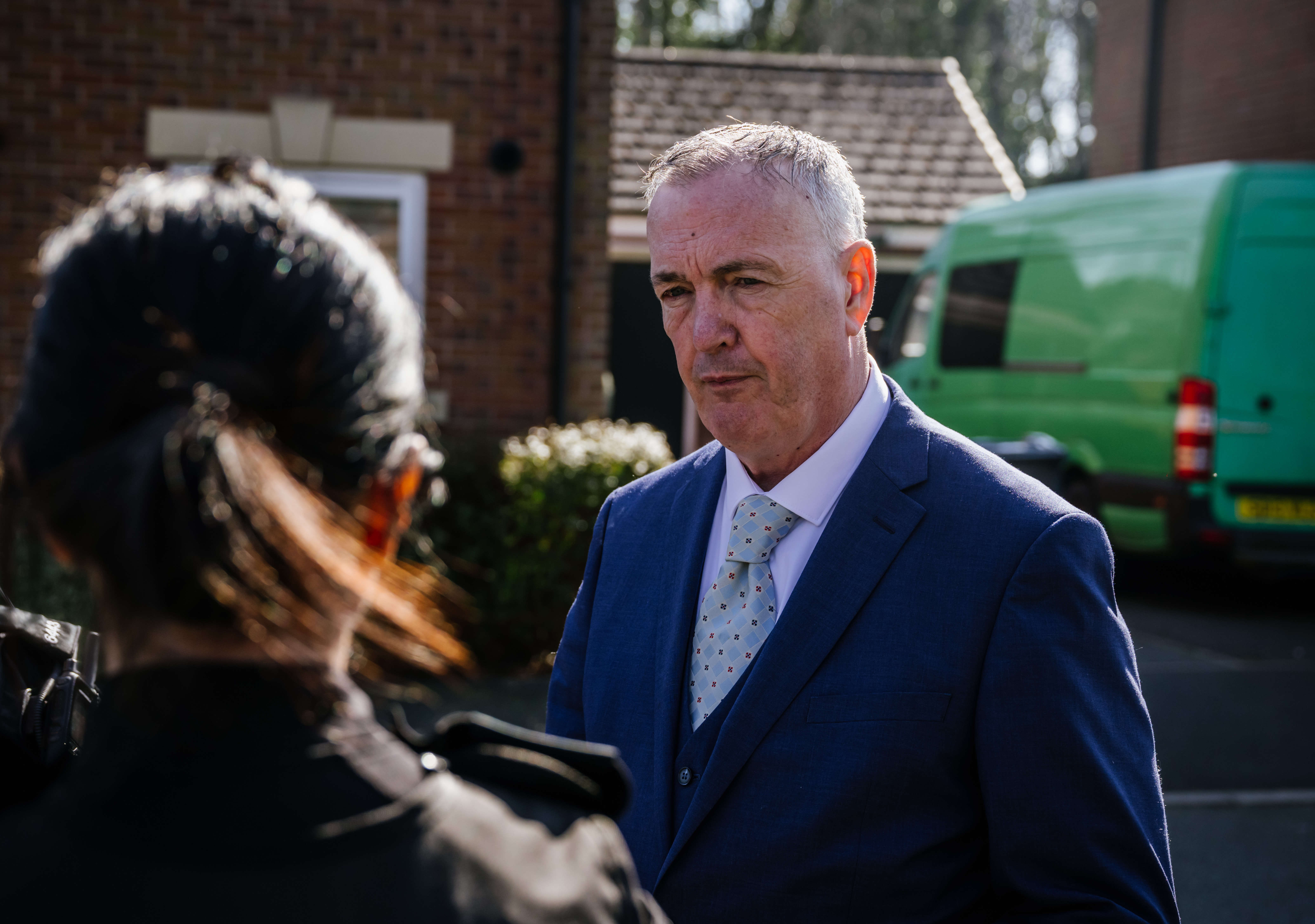 Lancashire Police’s share of Council tax to rise by 5.4 per cent
Lancashire Police’s share of Council tax to rise by 5.4 per cent
 Guys Thatched Hamlet closes suddenly after 46 years
Guys Thatched Hamlet closes suddenly after 46 years
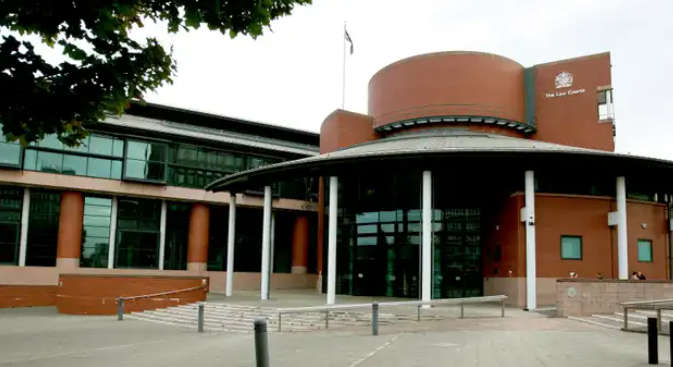 Teenager spared jail for causing death of newborn child in Morecambe
Teenager spared jail for causing death of newborn child in Morecambe









